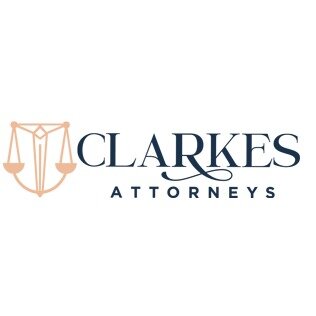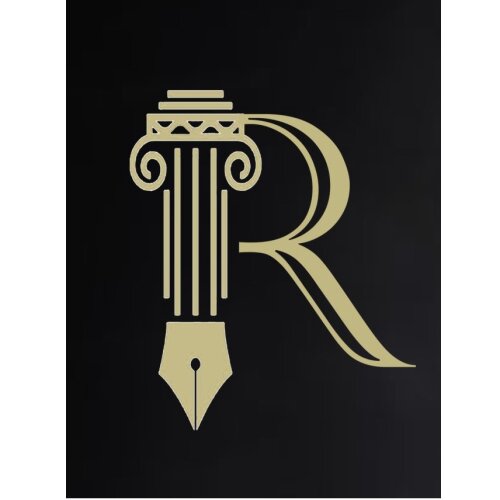Best ADR Mediation & Arbitration Lawyers in Malawi
Share your needs with us, get contacted by law firms.
Free. Takes 2 min.
Or refine your search by selecting a city:
List of the best lawyers in Malawi
About ADR Mediation & Arbitration Law in Malawi
Alternative Dispute Resolution (ADR) methods, including mediation and arbitration, have become increasingly important in Malawi as tools for settling disputes outside of traditional court litigation. ADR provides a more flexible, cost-effective, and time-efficient means of resolving conflicts. Malawi recognizes ADR under its legal framework, encouraging its use particularly in civil matters, due to its potential to alleviate the burden on the judiciary.
Why You May Need a Lawyer
Engaging a lawyer skilled in ADR mediation and arbitration can be crucial for several reasons. You might need legal help if you are involved in a commercial dispute, workplace conflict, family issue, or any civil disagreement where ADR can be applied. A lawyer can guide you on the process, help draft and review agreements, represent your interests during mediation or arbitration sessions, and ensure that any settlement is fair and legally binding.
Local Laws Overview
In Malawi, ADR practices are supported by the Constitution and specific statutes that govern civil procedures and tribal dispute resolutions. Key legal frameworks include the Judicature Act and High Court Rules, which recognize ADR as a legitimate method of dispute resolution. The Malawian government supports ADR to ease court congestion and promote amicable settlements, and various legal provisions are in place to guide the enforceability of ADR outcomes.
Frequently Asked Questions
What is the difference between mediation and arbitration?
Mediation involves a neutral third party helping disputing parties reach a mutual agreement. Arbitration also involves a neutral party, but the arbitrator makes a binding decision to resolve the conflict.
Is ADR legally binding in Malawi?
Yes, arbitration decisions are legally binding. Mediation agreements can be binding when documented and agreed upon by both parties in writing.
Can any dispute be resolved through ADR?
Not all disputes are suitable for ADR. Typically, civil and commercial disputes are ideal, while some criminal or severe civil rights issues might need formal court processes.
How do I find a qualified ADR practitioner in Malawi?
Qualified practitioners can be found through legal associations, ADR centers, or law firms specializing in dispute resolution.
How long does ADR take compared to traditional litigation?
ADR is generally faster than court processes, often taking weeks to a few months, compared to years of potential litigation.
Are the outcomes of ADR in Malawi confidential?
Mediation sessions are confidential, whereas arbitration hearings may not be unless both parties agree to confidentiality.
Can I reject an arbitration decision in Malawi?
Arbitration awards are binding but can be challenged on specific grounds such as procedural errors or partiality of the arbitrator.
What costs are involved in ADR?
Costs vary based on the complexity of the case and practitioner fees but are generally lower than court litigation costs.
How enforceable is a mediation settlement?
Mediation settlements, when documented, can be enforced similarly to a contract between parties.
Do I need a lawyer during ADR processes?
While not mandatory, having a lawyer ensures that your interests are effectively represented, and legal requirements are met.
Additional Resources
For more information and assistance, consider reaching out to the Malawi Law Society, the Centre for Alternative Dispute Resolution, and the University of Malawi's Faculty of Law. These organizations can provide guidance, practitioner directories, and additional insights into ADR processes.
Next Steps
If you require legal assistance in ADR mediation and arbitration, start by consulting a reputable lawyer or ADR practitioner with experience in these fields. Prepare a detailed account of your dispute, any previous negotiations, and desired outcomes to make the consultation more productive. Contact local legal bodies for referrals and use their resources to ensure you find a competent professional for your needs.
Lawzana helps you find the best lawyers and law firms in Malawi through a curated and pre-screened list of qualified legal professionals. Our platform offers rankings and detailed profiles of attorneys and law firms, allowing you to compare based on practice areas, including ADR Mediation & Arbitration , experience, and client feedback.
Each profile includes a description of the firm's areas of practice, client reviews, team members and partners, year of establishment, spoken languages, office locations, contact information, social media presence, and any published articles or resources. Most firms on our platform speak English and are experienced in both local and international legal matters.
Get a quote from top-rated law firms in Malawi — quickly, securely, and without unnecessary hassle.
Disclaimer:
The information provided on this page is for general informational purposes only and does not constitute legal advice. While we strive to ensure the accuracy and relevance of the content, legal information may change over time, and interpretations of the law can vary. You should always consult with a qualified legal professional for advice specific to your situation.
We disclaim all liability for actions taken or not taken based on the content of this page. If you believe any information is incorrect or outdated, please contact us, and we will review and update it where appropriate.
Browse adr mediation & arbitration law firms by city in Malawi
Refine your search by selecting a city.














